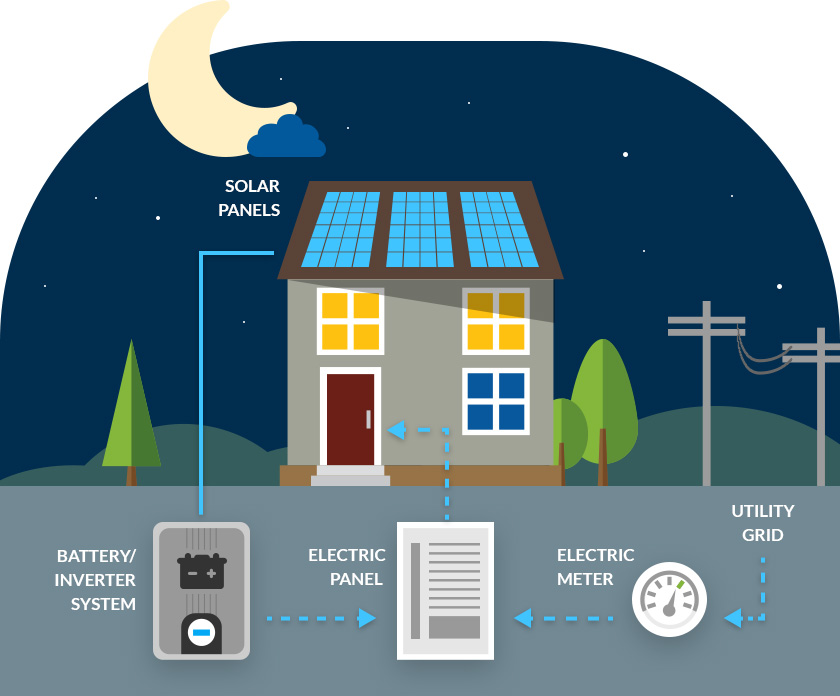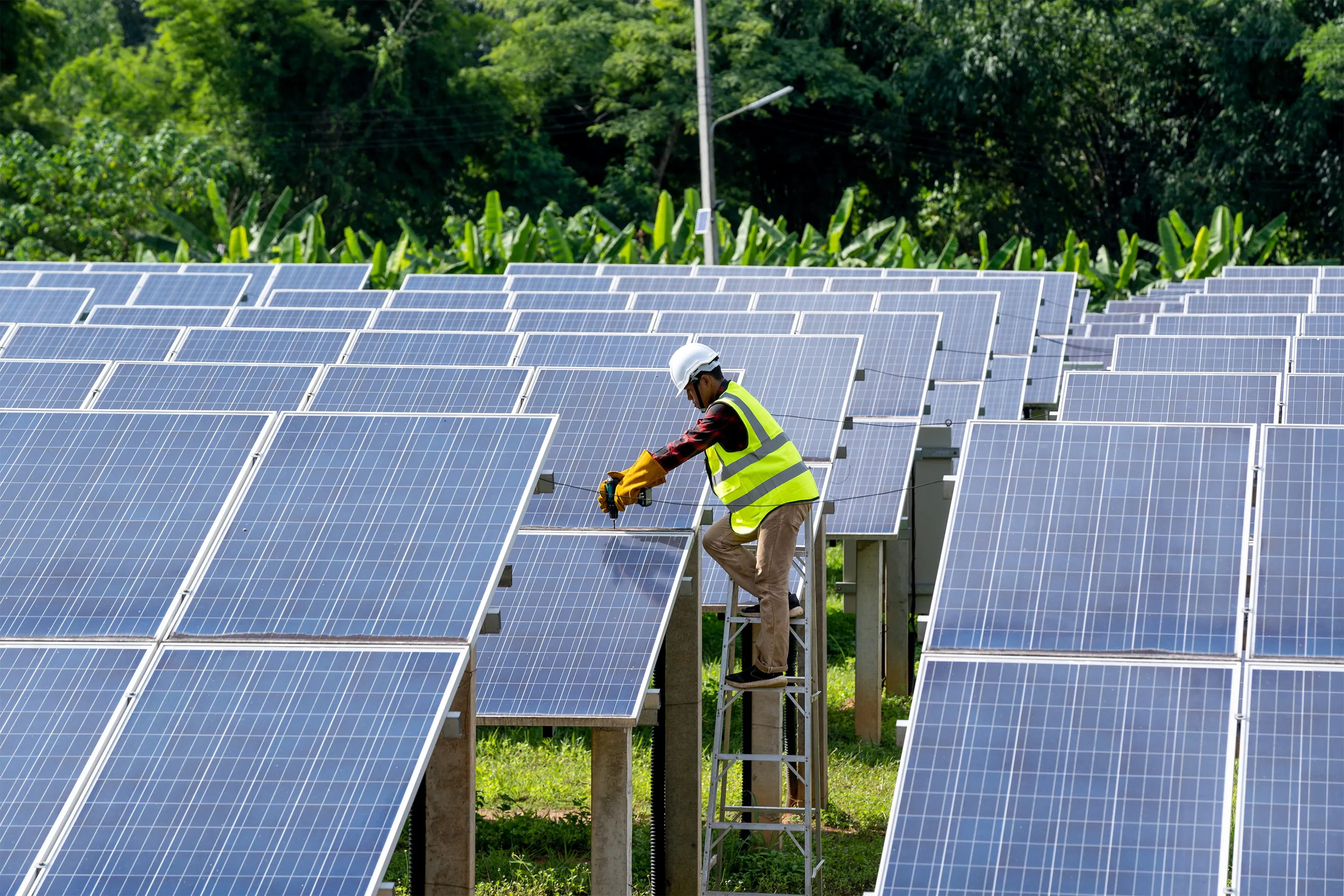The 5-Minute Rule for Commercial Solar Panels Virginia
The 5-Minute Rule for Commercial Solar Panels Virginia
Blog Article
Virginia Solar Power Company Reviews: Lumina Solar Specializes In Offering Advanced Photovoltaic Solutions For Houses And Companies
History and Establishing
Have you ever questioned how a solar panel company springs from a simple stimulate of motivation into a powerhouse of renewable energy? It typically begins with a vision-- one sustained by a blend of innovation, determination, and a pinch of serendipity. The journey of lots of solar business mirrors the advancement of the technology itself: from large, inefficient panels to sleek, high-efficiency marvels utilizing the sun's bounty.
The Early Days
In the late 20th century, when solar power was still a specific niche principle, pioneers planted seeds for what would end up being an international movement. Imagine a little workshop filled with curious engineers, relentlessly try out solar batteries. Their passion was palpable, often driven by a desire to combat climate modification and decrease dependence on fossil fuels.
One such anecdote has to do with a founder who, influenced by a camping trip, understood that even in remote areas, the sun might power vital gadgets. This easy observation stimulated a company's objective to equalize access to clean energy.
Establishing Principles

- Innovation: Constantly pushing the borders of solar technology to improve performance and toughness.
- Sustainability: Committing to environment-friendly production and lowering carbon footprints.
- Availability: Making renewable resource options budget friendly and useful for daily users.
Turning points in Growth
| Year | Secret Occasion |
|---|---|
| 1985 | Company established in a little garage, concentrating on research study and advancement. |
| 1995 | First industrial solar panel product introduced, acquiring regional attention. |
| 2005 | Broadened to worldwide markets, welcoming international sustainable energy goals. |
| 2015 | Introduced cutting-edge photovoltaic panel innovation with boosted energy conversion. |
Isn't it interesting how these incremental actions, typically ignored, shape the energy landscape today? The photovoltaic panel business story is not almost technology; it has to do with a ruthless quest for a brighter, cleaner future.

Innovations in Photovoltaic Panel Technologies
Ever seen how some solar panels shine brighter and last longer? It's not magic; it's the science of photovoltaic efficiency. Modern photovoltaic panel companies invest greatly in technologies like bifacial cells, which catch sunshine from both sides, enhancing energy harvest without expanding roofing system space. Have you ever questioned why some panels carry out much better on cloudy days? That's due to advances in thin-film solar technology, which prospers under diffused light conditions.
Item Variations Customized to Distinct Requirements
One size never fits all. Photovoltaic panel suppliers now offer:
- Monocrystalline panels for maximum effectiveness and sleek aesthetics, suitable for space-constrained rooftops.
- Polycrystalline panels, which provide an affordable alternative without compromising excessive output.
- Building-integrated photovoltaics (BIPV), combining solar tech flawlessly into architectural components like windows and facades.
Picking the ideal product isn't simply about upfront expense; it's about matching your environment, energy objectives, and long-lasting cost savings. For example, homes shaded by trees need panels that master low-light scenarios, something lots of ignore until energy bills climb all of a sudden.
Technical Tips for Ideal Choice
- Evaluate the temperature level coefficient-- lower worths indicate panels lose less performance on hot days.
- Look for panels with enhanced anti-reflective coatings to take full advantage of light absorption.
- Consider the panel's guarantee not simply for flaws, however for guaranteed power output over decades.
- Don't ignore the importance of the inverter technology coupled with the panels; it can make or break your system's performance.
Beyond Panels: Emerging Trends
Imagine solar panels that adjust their angle immediately to go after the sun-- tracking systems are ending up being more available, increasing yield considerably. Or solar tiles that blend undetectably into your roofline, transforming your home into a quiet, self-dependent power generator. These innovations are improving what a solar panel business provides-- not simply items, however integrated energy options.
Market Presence and Global Operations
Ever question why some photovoltaic panel companies appear to grow up in every corner of the globe while others barely make a ripple? The distinction lies not simply in innovation but in mastering the art of navigating diverse markets. Expanding internationally is like planting seeds in various environments-- you must understand each environment's unique conditions to grow.
Take, for instance, the intricate dance of logistics and supply chain management. Shipping panels halfway across the world isn't almost distance; it has to do with timing, customs, tariffs, and adapting to local demand fluctuations. A company with robust international operations expects these variables, ensuring panels get here on schedule without inflating costs. This foresight is no small task and typically separates market leaders from followers.
Key Techniques for Expanding Market Existence
- Localized production: Establishing production hubs near target audience reduces shipping hold-ups and import complexities.
- Strategic collaborations: Collaborating with regional companies speeds up market penetration and constructs trust.
- Adaptive item design: Tailoring solar panel tech to weather, sun strength, and facilities nuances enhances efficiency and approval.
What about the human factor? Solar panel business operating globally need to reconcile cultural distinctions and regulative subtleties without losing sight of their core mission. For instance, what works in a sun-drenched desert might falter in a humid seaside region. Sometimes, the most innovative service is just listening-- taking in local insights to improve innovation and method.
Experts frequently recommend a phased rollout instead of a shotgun expansion. Why run the risk of overextension when measured growth develops sustainable momentum? Scaling wisely implies balancing ambition with functional resilience - Commercial Solar Panels Virginia. After all, in the race for sustainable energy dominance, persistence can be as important as speed
Ecological Effect and Sustainability Practices
When photovoltaic panels initially emerged, lots of presumed they brought zero environmental baggage. The truth is more nuanced. The production of photovoltaic cells includes rare earth metals and energy-intensive processes, which can leave a large carbon footprint before the panels even reach rooftops. The true environmental expense depends greatly on the sustainability practices employed by the photovoltaic panel company throughout the lifecycle of their products.
How often do we pause to consider what occurs to solar panels at the end of their helpful life? Unlike batteries or electronics, photovoltaic panels can last 25-30 years, however disposal and recycling paths stay underdeveloped in lots of regions. A company committed to decreasing ecological harm will have a robust prepare for recycling photovoltaic products, salvaging important silicon, glass, and metals to avoid garbage dump accumulation.
Secret Sustainability Strategies
- Using low-impact manufacturing strategies that minimize water and energy usage.
- Executing closed-loop systems to recycle production waste back into new panels.
- Taking part in transparent supply chain audits to make sure ethical sourcing of basic materials.
- Designing panels for easier disassembly to help future recycling efforts.
It deserves noting that some solar companies have actually originated innovative techniques, such as integrating eco-friendly components or using less toxic chemicals during fabrication. This not only decreases environmental pressure but likewise sets a precedent for the market. The concern stays: can the solar industry truly more info pivot towards a circular economy design without sacrificing efficiency or affordability?
Professional Tips for Examining Sustainability
- Ask about the company's dedication to carbon-neutral production and whether they offset emissions.
- Examine if they partner with licensed recycling facilities committed to photovoltaic panel waste.
- Try to find openness reports detailing environmental effects and sustainability objectives.
- Consider the longevity and warranty of panels as an indirect procedure of resource performance.
In the end, choosing for solar power should imply more than just slashing electricity costs; it's about supporting a future where energy is collected properly and waste is attentively managed. Solar panel business that embrace this philosophy not only brighten homes however also cast a brighter light on sustainable development.
Report this page